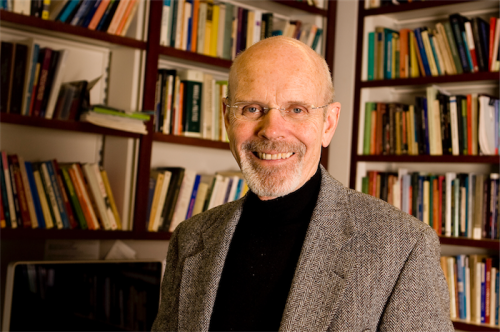
AUSTRALIANS love to cut down our tall poppies. One of the things we could learn from the Americans is how to support success. Sincere and well-deserved encouragement and congratulations is generally lacking in the way Australians treat one another. This is just one of the reasons that I was delighted to see the recognition of Prof Philip Pettit as a Companion of the Order of Australia (AC).

This is the highest award that a nation can bestow. I was delighted that Philip Pettit was recognised this way for a number of reasons. Philip is a long-term friend. Much more importantly, his work as a political philosopher provides a fundamental understanding of how to develop a fairer society whether at the local, national or international level.
In the general community philosophers are often seen as moving in a different paradigm. However, Philip Pettit is different. He has been able to apply his philosophical thinking into practical applications even within the ACT.
In 1998 Prof Pettit was chair of the “Review of the Governance of the Australian Capital Territory” along with Tim Keady and Bill Blick. The report covered constitutional, electoral, legislative and executive roles of government along with community access.
The review included a series of public hearings and resulted in 30 recommendations, many of which were adopted by the Assembly and by the government of the time.
His work has also had practical ramifications internationally. In 2004, José Luis Rodríguez Zapatero, the Prime Minister of Spain, invited Prof Pettit to give an ongoing assessment of Zapatero’s government to measure the extent of his government’s success in implementing Pettit’s philosophical ideas.
Zapatero was familiar with Philip Pettit’s 1997 book, “Republicanism: A Theory of Freedom and Government”. He found the ideas overwhelmingly influential and decided to adopt them. Pettit’s “Republicanism” was incorporated into the Spanish Socialist party as the “New Way”.
Karin Dienst, writing for “News at Princeton” in 2008, summed up his contribution to effective, fair and ethical government with the words “offers a clear-cut set of principles with practical ways to organise government so that it is responsive and enabling”. Although the French-language weekly news magazine “Le Nouvel Observateur” in 2005 named Pettit “one of the 25 greatest thinkers in the world”, he remained a truly humble man – engaging with ordinary people, listening carefully and providing ideas that would extend others.
Although I had known Philip for a number of years before the publication of his 1997 book, the text had considerable impact on how I conducted my own politics. His profound understanding and insights on “freedom from domination” rather than ideas pushed primarily by industry as “freedom from interference” was fundamental to my own understanding of liberty.
The work laid the groundwork for a liberal philosophy that allowed me and others to understand the appropriate basis on which governments ought to regulate or deregulate.
This was not just practice from the past. Relatively recently, I wrote a submission on behalf of the Public Health Association of Australia to the Senate Standing Committees on Economics Inquiry into “Personal Choice and Community Impacts” chaired by Senator Leyonhjelm, which largely focused on the “nanny state”. The submission and my responses when appearing before the committee were anchored in this philosophical thinking.
However, there is also Philip the personable. Before taking up his post as Laurance S. Rockefeller University Professor of Politics and Human Values at Princeton University, Philip lived in Reid and was a key personality at neighbourhood gatherings where local, national and international ideas were discussed. Despite his own intellect, Philip could make everyone feel comfortable as he would value their opinion, listen carefully and debate with respect.
In the 1990s as an independent member of the ACT Legislative Assembly I was fortunate enough to have advice from Philip on matters of ethics and political philosophy generally. He spent considerable time with me providing advice on how to avoid adverse situations and how to manage my role more effectively.
I am delighted that Australia has an effective system that appropriately honours such tall poppies.
Who can be trusted?
In a world of spin and confusion, there’s never been a more important time to support independent journalism in Canberra.
If you trust our work online and want to enforce the power of independent voices, I invite you to make a small contribution.
Every dollar of support is invested back into our journalism to help keep citynews.com.au strong and free.
Thank you,
Ian Meikle, editor









Leave a Reply